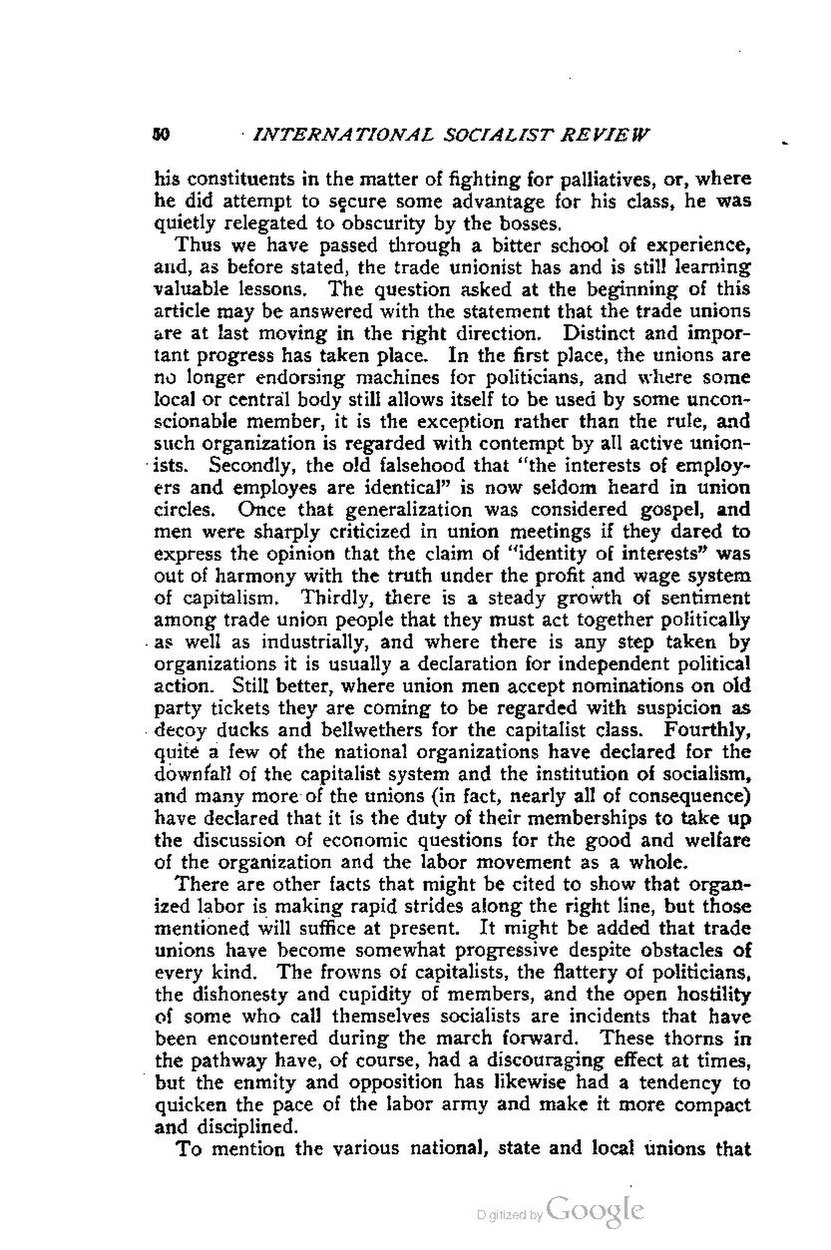his constituents in the matter of fighting for palliatives, or, where he did attempt to secure some advantage for his class, he was quietly relegated to obscurity by the bosses.
Thus we have passed through a bitter school of experience, and, as before stated, the trade unionist has and is still learning valuable lessons. The question asked at the beginning of this article may be answered with the statement that the trade unions are at last moving in the right direction. Distinct and important progress has taken place. In the first place, the unions are no longer endorsing machines for politicians, and where some local or central body still allows itself to be used by some unconscionable member, it is the exception rather than the rule, and such organization is regarded with contempt by all active unionists. Secondly, the old falsehood that "the interests of employers and employes are identical" is now seldom heard in union circles. Once that generalization was considered gospel, and men were sharply criticized in union meetings if they dared to express the opinion that the claim of "identity of interests" was out of harmony with the truth under the profit and wage system of capitalism. Thirdly, there is a steady growth of sentiment among trade union people that they must act together politically as well as industrially, and where there is any step taken by organizations it is usually a declaration for independent political action. Still better, where union men accept nominations on old party tickets they are coming to be regarded with suspicion as decoy ducks and bellwethers for the capitalist class. Fourthly, quite a few of the national organizations have declared for the downfall of the capitalist system and the institution of socialism, and many more of the unions (in fact, nearly all of consequence) have declared that it is the duty of their memberships to take up the discussion of economic questions for the good and welfare of the organization and the labor movement as a whole.
There are other facts that might be cited to show that organized labor is making rapid strides along the right line, but those mentioned will suffice at present. It might be added that trade unions have become somewhat progressive despite obstacles of every kind. The frowns of capitalists, the flattery of politicians, the dishonesty and cupidity of members, and the open hostility of some who call themselves socialists are incidents that have been encountered during the march forward. These thorns in the pathway have, of course, had a discouraging effect at times, but the enmity and opposition has likewise had a tendency to quicken the pace of the labor army and make it more compact and disciplined.
To mention the various national, state and local unions that
